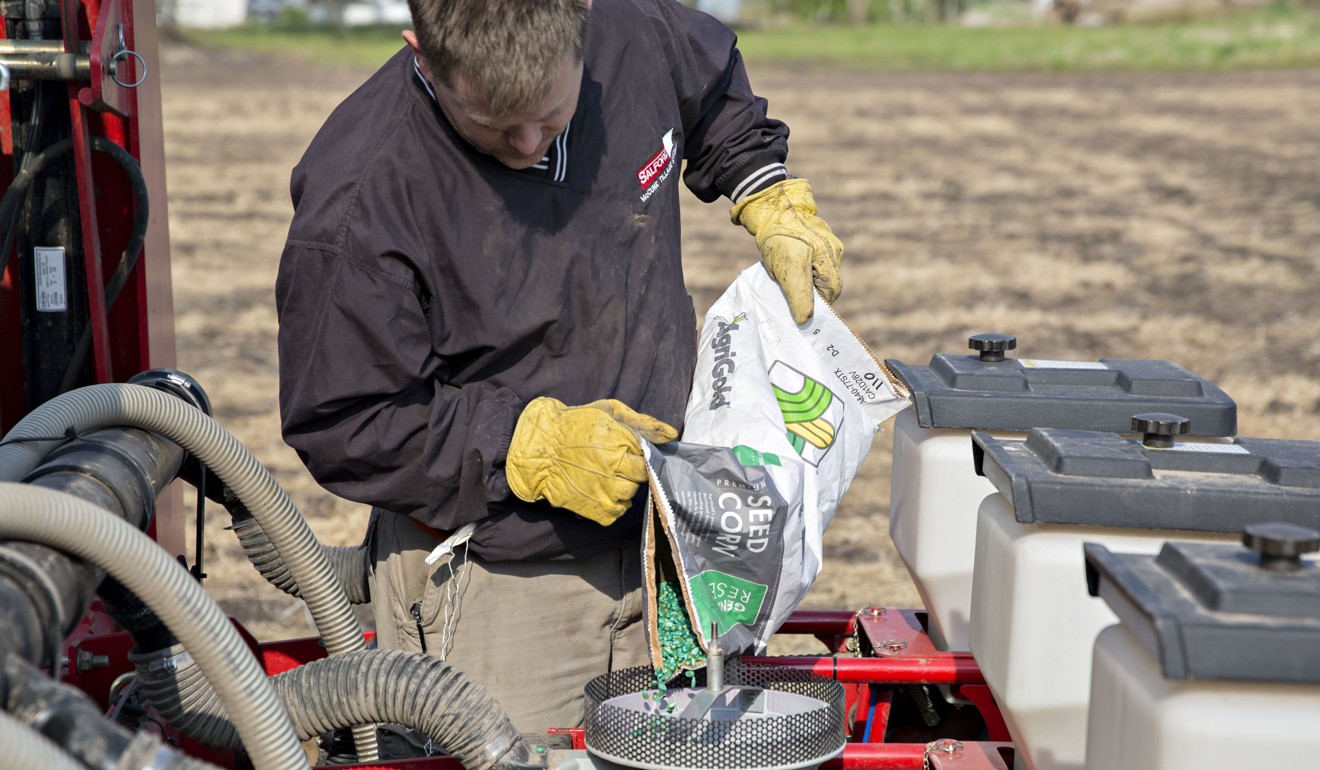
China to review eight kinds of US GMO crops in move that could spur seed sales
China’s promise to evaluate eight varieties of US genetically modified crops by the end of this month under a trade deal marks a step forward in a years-long process that has held up seed sales in the United States, the world’s top grains exporter.
Every new variety of GMO crop has to win approval in export markets before it can be sold there.
China’s review covers crops grown from seeds developed by major agrichemical companies, including Monsanto, Dow Chemical and DuPont , the US Commerce Department and the companies said on Friday. They have been stuck in the Chinese approval process for up to six years.
Dow AgroSciences said Chinese approval would be key to the roll out of its new Enlist corn and soybeans seeds in the United States, where over 90 per cent of corn is genetically modified.
China was the top export market for US agriculture products, valued at over US$21 billion, in 2016 and is the world’s biggest buyer of soybeans. It has roiled markets and sent prices sliding in the past when it has taken a tough line on imports of certain GMO products.

In November 2013, China began rejecting US corn shipments because Chinese inspectors said they contained a GMO corn variety made by Syngenta AG called Agrisure Viptera. The variety was approved by the United States but not China.
A US trial over the matter is set to start this summer, with farmers suing Syngenta after corn prices allegedly fell because of the rejections, which cost the agriculture industry up to US$2.9 billion in lost sales and lower prices.
Agrichemical companies have since taken a careful approach to launching products. For Enlist, Dow AgroSciences has restricted sales to US customers during China’s review.
Chief Executive Tim Hassinger said he was “very encouraged by the progress announced by the US and Chinese governments.”
Monsanto makes four of the products pending approval, including herbicide-tolerant corn, soybean and alfalfa varieties that have been under review for almost five years, spokeswoman Christi Dixon said. DuPont Pioneer and Syngenta each make one of the other products pending approval, according to biotech industry group BIO.
The development on GMO crops accompanied news that China will also resume US beef imports by mid-July after banning them due to a scare over mad cow disease in 2003.
That year, the United States exported US$10 million worth of beef to China. China’s imports climbed to US$2.3 billion by 2015 from suppliers in Brazil, Argentina, Canada and Australia.
On Friday, a representative of Chinese buyers was already seeking to meet Illinois beef producers because of the new trade deal, according to the Illinois Farm Bureau.

